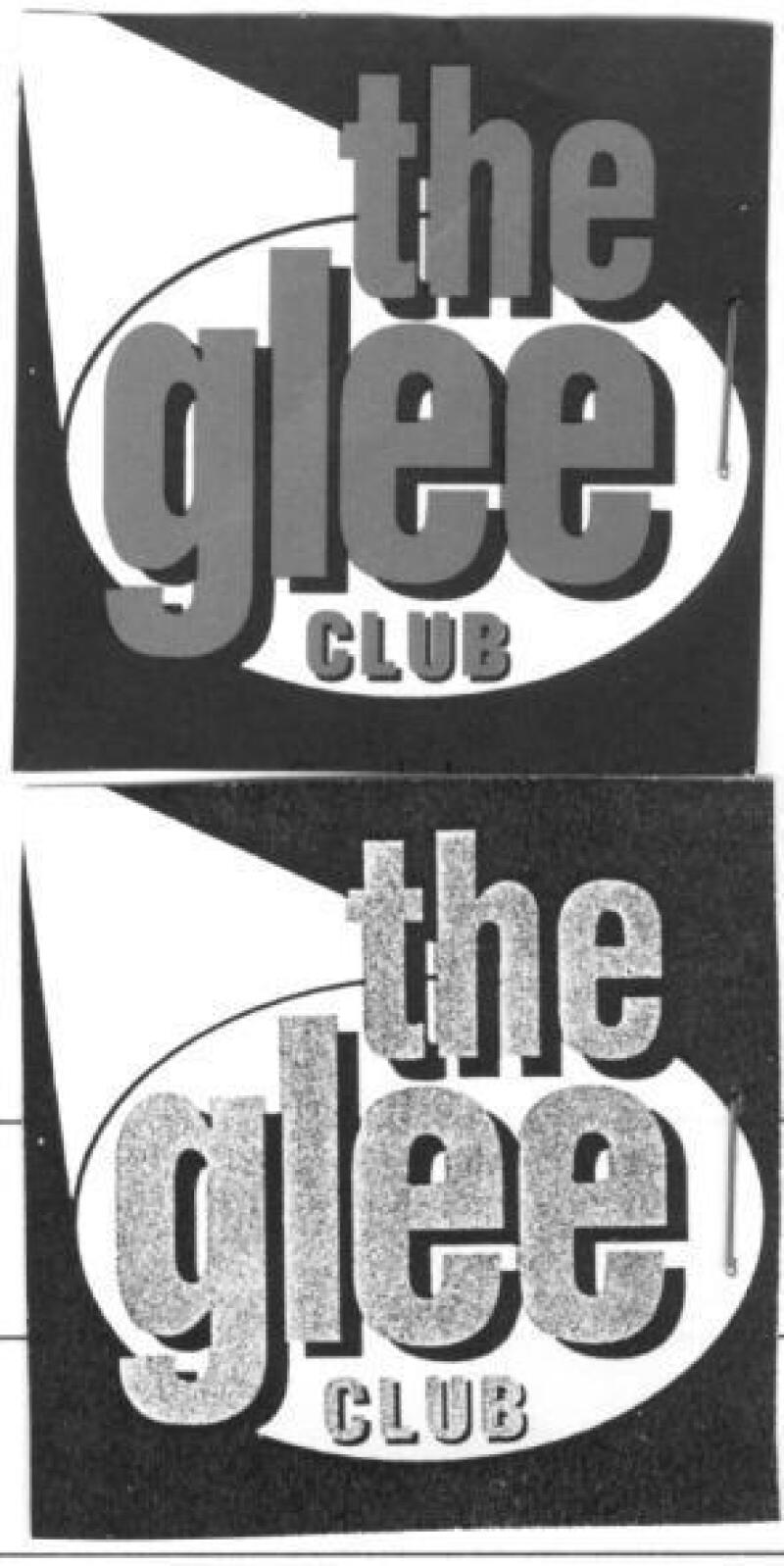
The dispute was a fairly typical trade mark infringement and passing off case, except that it involved a high-profile defendant (Twentieth Century Fox), sued by a company called Comic Enterprises, which runs a comedy venue called The Glee Club. Fox produces glee (below left), which is broadcast on Sky in the UK.
Last week, Deputy High Court Judge Roger Wyand QC issued a complex ruling (it’s a sign of the workload in the courts that more and more IP cases are being heard by deputy judges – effectively barristers temporarily crossing to the other side of the bench). He upheld The Glee Club mark (right), albeit in just one class and with a limited specification, and found there was trade mark infringement, but paradoxically did not find passing off.
The consequence is that Comic Enterprises is entitled to seek an injunction and damages, with a remedies hearing set for March 12. That could result in Fox being unable to broadcast glee in the UK, or sell any DVDs, downloads or merchandise, without an expensive and possibly unpopular rebrand.
However, Fox says it will seek permission to appeal the judgment at the same hearing on March 12. It is likely to point to inconsistencies between the judge’s findings on trade mark infringement and passing off regarding confusion and economic effect, as well as questioning his conclusion that there was tarnishment because potential Glee Club customers were put off (why would association with the TV programme be a bad thing?).
So there may be further developments later this year. In the meantime, though, it’s worth looking at the evidence the judge relied on. As we’ve written before, the UK courts are sceptical about surveys and Comic Enterprises did not present any survey evidence. Instead, it provided real people who testified that consumers connected the two Glees. These included staff at its clubs, contractors who had worked on marketing campaigns and potential customers. But arguably the decisive witness was Tracey Jones, a woman from Wales, who was cross-examined by video link.
Jones is active on twitter. In 2012, after the legal proceedings in this case were begun, she saw a tweet about them and tweeted that, back in 2010, she had seen a trailer for the glee TV programme and had connected it with The Glee Club, which had a branch in Cardiff. Mark Tughan, the owner of Comic Enterprises, saw the tweet and asked her to give evidence. The judge was impressed: “Having seen Tracey Jones on the video link I found her evidence entirely credible. She was not recalling a tweet that she had sent, she was recalling being confused.”

Jones was the only witness who was already familiar with The Glee Club (even though she had not been herself) who connected it with the glee programme. As the judge said, “her evidence suggested that it was possible that the average consumer might be confused”. Her 2012 tweet was crucial in supporting the judge’s finding that there was a likelihood of confusion between the two Glees.
I know from attending conferences and talking to in-house counsel that many trade mark owners see social media such as twitter and Facebook as a threat to their brands, with infinite possibilities for people to mis-spell, criticise, confuse, genericise or generally abuse their rights. But the Glee case shows that social media users can sometimes be an aid, providing time-stamped, unprompted, unfiltered evidence showing confusion or association.
If judges follow this ruling and give weight to such evidence, that raises more questions of course. There are millions of opinions out there on twitter, Facebook and other sites: are they all potentially useful and well-informed? Does it matter how they are obtained? What if a brand owner requests people to volunteer such information, or offers a reward for doing so? What if there is conflicting evidence from different people? How will a judge assess which is more trustworthy?
These are questions that courts will have to grapple with more and more in future IP disputes.









